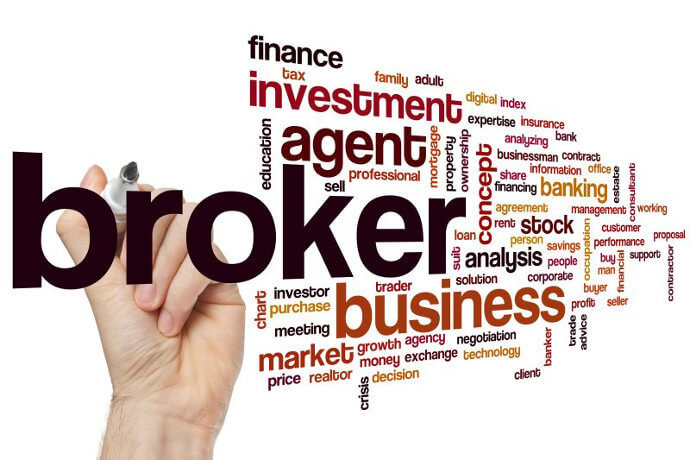What Do Business Brokers Do
Business brokers are central to trading organizations. As middlemen, they help the vendor and purchaser communicate and connect for an issue-free exchange process. Their business involves valuing companies, finding willing buyers or sellers, and negotiating terms and conditions on a mutually agreed-upon basis.
The core responsibilities of a business broker are determining the accurate market value of the business so sellers are offered the proper price quote. On the buyer’s side, the brokers advise the evaluation of an opportunity that best meets his or her goal and financial capabilities. A network enables the broker to get leads for potential business owners who qualify for the offer, all in strict confidence.
Business brokers assist in matchmaking besides handling legal paperwork, conducting due diligence, and compliance requirements. Their ability to streamline complex transactions saves time and reduces stress for their clients. Whether you want to sell or buy a business, the help of a business broker can be valuable in attaining a good outcome. Also Read: Reflection of Value in Finance
Key Responsibilities of Business Brokers
Business brokers play a crucial role in ensuring successful transactions by performing the following main tasks:
- Facilitating Deals: Business dealers assume a pivotal part in guaranteeing effective exchanges by playing out the accompanying principal errands:
- Working with Arrangements: Go about as middle people, interfacing with purchasers and dealers, arranging terms, and guaranteeing smooth exchanges.
- Directing Valuations: Dissect monetary records, market patterns, and business tasks to decide exact market esteem.
- Promoting Organizations: Make itemized business profiles and utilize designated systems to draw in qualified purchasers while keeping up with privacy.
- Handling A fair level of investment: Assist in reviewing financials, legal consistency, and other aspects of the transaction.
- Preparation Official Reports: Organize agreements, agreements, and other paperwork involved in the sale or purchase of a business.
- Providing Master Counsel: Guide clients through the complexities of the transaction, providing experience to minimize risks and maximize rewards.

How Business Brokers Help Sellers
Business brokers assist vendors with working on the most common way of selling their business and expanding its worth. The main errand that they do is finding an honest evaluation of the business. In doing so, they make thorough assessments of the financial records, assets, and market trends that guide the sellers to set an asking price competitive yet realistic for the business.
Marketing is another very important factor. Business brokers develop attractive business profiles and utilize focused strategies to attract serious buyers. They also keep confidentiality; the sale process ensures that confidential business information remains safe.
They will manage inquiries from buyers, qualify prospects, and negotiate the best possible deal on behalf of the seller. They will walk sellers through all complex legal and financial paperwork to ensure no errors occur and that all the regulations are complied with.
With their expertise, business brokers save time and stress and ensure the sellers get the most favorable terms on the sale of a business, making it an easy and fulfilling experience.
How Business Brokers Assist Buyers
Business brokers play a significant role in guiding buyers to select and purchase the appropriate business in line with the objectives and means available. One of their principal obligations is determining the objectives of the buyer: his industry interest, his budget, and his long-term goals. Brokers then match appropriate businesses with buyers from their network of contacts or listings.
They furnish purchasers with itemized data about expected open doors, including monetary records, market position, and functional bits of knowledge. Business handles likewise guide purchasers through the reasonable level of effort process, assisting them with assessing chances and guaranteeing the business is a sound speculation.
Merchants, accordingly, will help in arranging terms that are positive for the purchaser while shutting any provisos between the two. Their knowledge also ensures that the buyer does not fall into most pitfalls, like overpayment or failure to realize significant operational details.
In reality, business brokers guide buyers throughout the entire transaction-from identifying opportunities to closing the deal and making an otherwise complicated and daunting process of buying a business much more possible and successful for buyers.

Benefits of Hiring a Business Broker
Recruiting a business dealer accompanies a few benefits for purchasers and vendors the same. One of the principal benefits is their business valuation aptitude. They can give market-based evaluations of organizations and assist the vendor with getting the legitimate cost, as well as give the purchaser trust in pursuing their venture choice.
Expedites additionally save time as they handle the complexities of the exchange. They market the business to a designated crowd, qualify likely purchasers, and oversee requests, giving the merchant additional opportunity to zero in on maintaining the business. To the purchaser, dealers improve on the pursuit interaction by distinguishing organizations that match their rules and directing them through the expected level of effort steps.
Business handles likewise have the discussion abilities to assist in agreeing with the two players. They handle all the paperwork and guarantee that lawful consistency is made with insignificant potential outcomes of expensive mistakes.
By and large, employing a business merchant can work on the method involved with trading, consequently expanding esteem while limiting gamble on the two sides.
FAQs
How do business brokers determine the value of a business?
Business brokers evaluate the value of a business by analyzing financial records, industry trends, assets, liabilities, and market conditions to provide an accurate market value.
Can business brokers help buyers with financing options?
Yes, many business brokers assist buyers by connecting them with lenders or financial advisors, helping them secure the necessary funding for their purchase.
What is the typical commission rate for a business broker?
Business brokers typically charge a commission ranging from 5% to 10% of the final sale price, though this can vary based on the size and complexity of the transaction.
Do business brokers offer post-sale support?
Yes, many brokers offer post-sale support to ensure a smooth transition, helping buyers integrate into the business and assisting sellers in wrapping up final legal or financial matters.
Conclusion
Business merchants are fundamental in the trading system, offering ability in business valuations, discussions, and administrative work. For vendors, dealers assist with getting a fair cost and draw in serious purchasers, while purchasers benefit from proficient direction in tracking down the ideal time.
Their job takes into consideration a fruitful exchange with lower chances and the most noteworthy conceivable potential for both. With their master information on their industry, the business dealers work to make such a cycle simple and fruitful; subsequently, priceless in a business trade.

